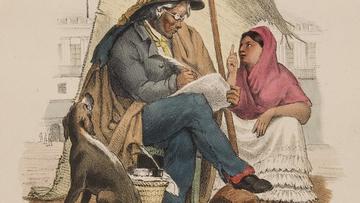Conference Convenor: Dr Timo Schaefer, University of Edinburgh

Image: Claudio Linati (1790–1832), Costumes Mexicains. Ecrivain public, sur la grand' place á Mexico, 1828. Reproduced with permission from Amon Carter Museum of American Art, Fort Worth, Texas. 1985.31.9
This conference examines how ordinary people responded to the transformation of Latin America’s systems of justice following the end of the colonial period. In the decades following Latin American independence the region embarked on a veritable legal revolution. In this period, Latin American lawmakers eliminated the differences between social groups that had defined the colonial legal order. They abolished slavery. They designed procedural rules to guarantee the equal treatment of all litigants and they dramatically improved the accessibility of the law, building courts and appointing justices of the peace in areas whose residents had previously had little contact with formal judicial institutions.
Scholars have done much to illuminate the intellectual history of that legal revolution. But they have neglected to study the impact of legal change on society in nineteenth-century Latin America, treating republican law largely as touching the lives of popular sectors only as a disruptive, punitive imposition. This conference, by contrast, explores how ordinary people engaged with and used republican law. It invites scholars to consider how Latin America’s post-colonial legal revolution remade not only the paper-worlds of men of letters but the world of ideas, interests, and ambitions of the region's non-elite majorities.
Registration details:
To join in-person, please book your place at: https://www.eventbrite.co.uk/e/404503780697
To join online, please register in advance at: https://us02web.zoom.us/meeting/register/tZYpceitpzgqE9RWah3q-yOXp9z2A6R...
Conference Programme
British Academy Conferences bring together scholars and specialists from around the world to consider and evaluate new research in the humanities and social sciences.
Funded by the Department for Business, Energy and Industrial Strategy (BEIS)